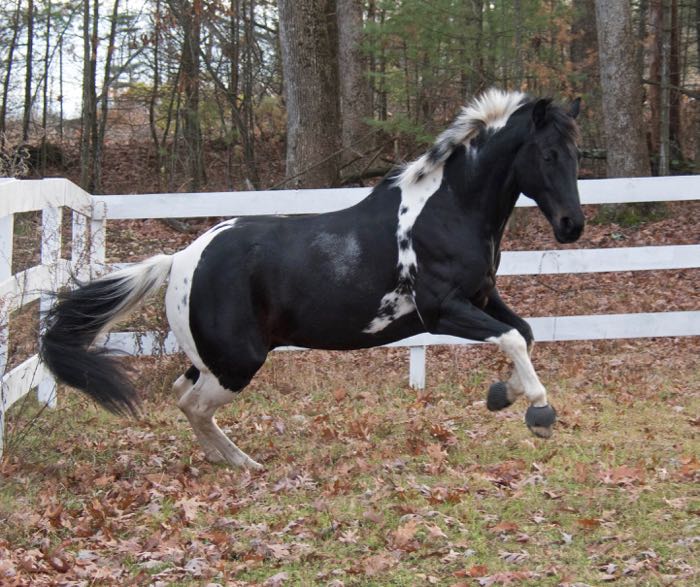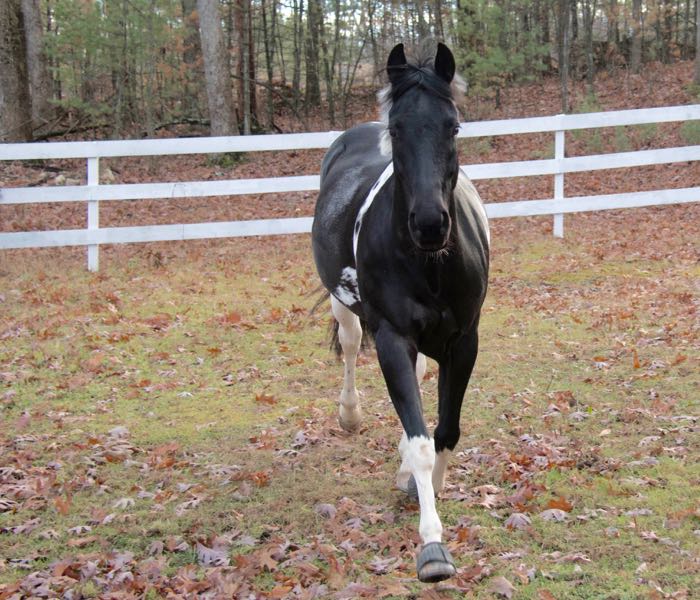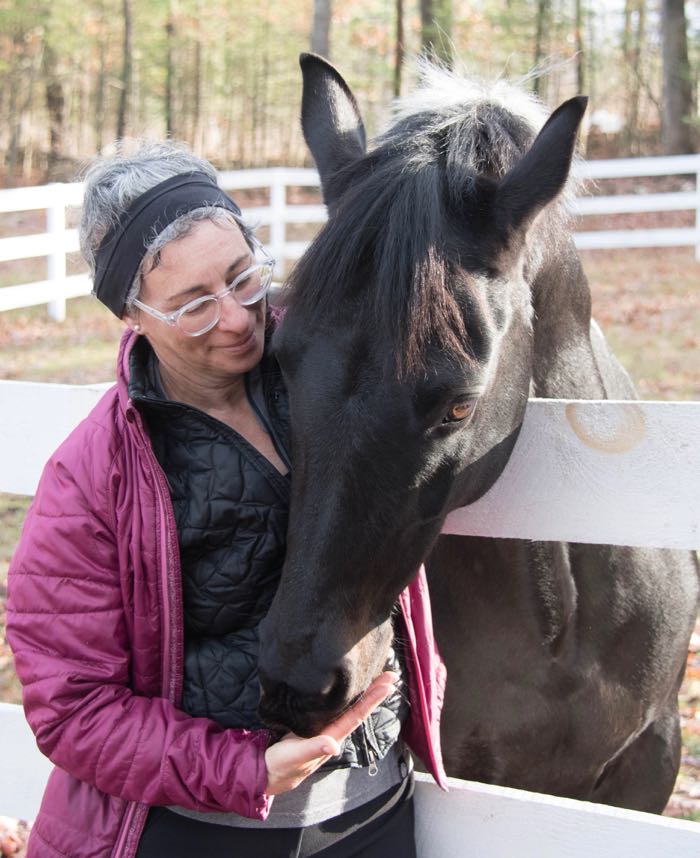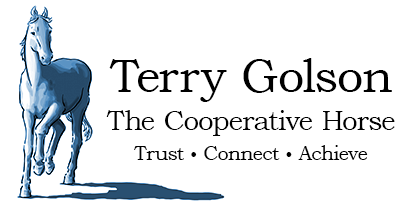Take your dog to a trainer and one of the behaviors that they’ll teach you is how to get your pet to come when called. A good trainer will teach you the reliable recall, one that your dog listens to despite distractions, like bicycles zipping by, or a piece of hamburger on the ground. Such training takes time and your attention. Training like this is never finished, there’s always a situation that arises that you haven’t faced before. But, if you have a positive history of recalls with your dog, you can handle whatever pops up with your training skills. A reliable recall is incredibly important both for safety (you don’t want your dog madly taking off after a squirrel through the woods or into the street) and simply because being with your dog is a lot more fun when you’re able to say come on back, and they want to.
You can teach your horse to come, too. I’ve taught Tonka to stay and come in the arena. But, that’s not the same thing as teaching him to come when out on grass, or eating at his hay net, or relaxing in his paddock. Horses aren’t as motivated by the same things that dogs are. Dogs love the thrill of chasing things. With dogs, it’s easy to reinforce behavior with play. Horses don’t usually respond like that (you can train a horse to play, but that’s not the same thing.) Horses don’t hunt – in their natural environment food is always at their feet. Horses will come when they know it’s dinnertime and grain is waiting for them (that concentrated and often sweet feed is like a big bowl of candy to them) but if they’re out in a field, there’s not much intrinsic motivation to leave their friends and grass to come to you. You have to train your horse that it’s worthwhile to come to the gate. Food is a draw, but it doesn’t always work. Combine food with a solid friendship and you have a horse that eagerly waits for you like this:

I work on this reliable recall daily. I say come when Tonka is in his stall facing away from me and I want him to turn around so that I can halter him. I say come when he is in his paddock and I’d like him to take three steps towards me. Every time he comes he gets reinforced. He doesn’t need much. Sometimes it’s a thin slice of carrot. The come often leads to other positive things, like grazing and grooming. I continue to work on the stay and come in the indoor. I do this so that Tonka associates come with good things, and with me, and hopefully that’s one and the same.
So, when Tonka is out in the grass paddock (allowed a half-hour daily to keep the turf in good shape) and I say come! this is what I get.

There are days that it’s not this speedy, but it’s always this cheerful.

You might say that Tonka got handed only one little peppermint for this, but actually, we both got a lot more.

I’d do this training just for the relationship aspect of it, but it’s for safety, too.
Last year Tonka and I trailered to a state park. The parking area is a field next to a busy road. I had tied Tonka up to the side of the rig and was putting gear away, when I looked over and saw that the lead rope had come undone and he was head down and grazing, making his way towards the road. A loose horse in a new place might take flight at any moment. If I’d made a sudden run for him, he might have taken off. Instead, I was able to stand calmly and call Tonka, come! He did.
Do you have a good recall story? Tell me in the comments.


I have used a clicker and feed to teach other people’s horses that are ‘hard to catch’ to come when called. And to stand still voluntarily to be hooked up and led. Takes one lesson and about five to eight clicks and treats. They usually come to the gate on their own after that. Doesn’t always transfer to the owner however
Handy behavior to establish, and as you say, useful everywhere.
Yes, it’s easy if you’re working with a clean slate. Too many horses are only called in for (in the horse’s perspective) negative reasons. Rather like if the only time you call your dog is to trim her nails. (You know that, of course, some of my readers may not.) Next time you visit Tonka, let’s see if the “come” cue is effective for you. If not, let’s train it.
Little Merlin and George the two horse’s Jess rides are in a field of six. When she calls they both come readily and happy to be tacked up, probably because they know they will get a treat and taken out for a ride, with a gentle groom when they get back. I think they enjoy the ride as it is a change of scene from the field. The others in the field are not as cooperative and would need a lot of training to get to where the other two are. The last two blogs have had some wonderful pic’s of Tonka he really is a handsome boy..:)
Looks like you might have a sprinkle of snow, but to dark to fully make out yet !!
Just a sprinkle of snow, but it seems to be staying around. We shouldn’t get the serious accumulation until February.